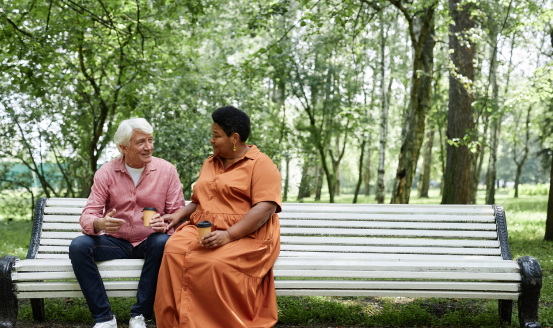
ALS community stories
Each person’s experience with ALS is different and comes with a unique set of challenges that spark inspiration and hope. It is through sharing these experiences that we can help one another.
A best friend’s life-changing decision
May 26, 2022
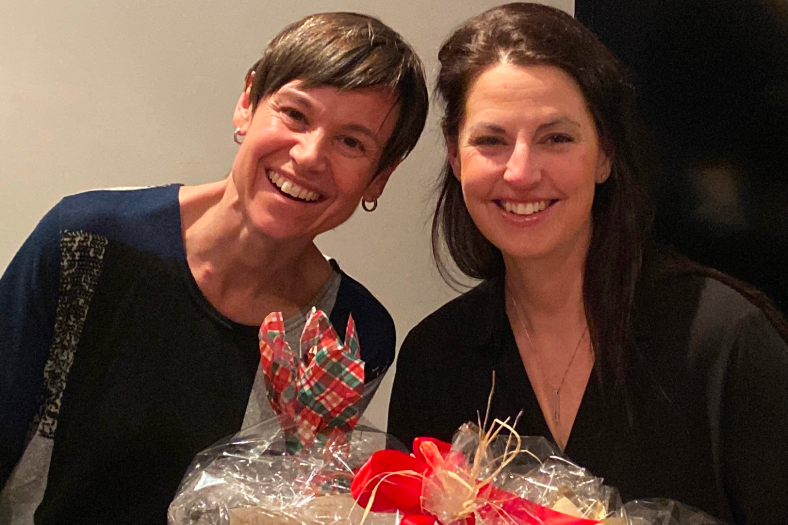
For some, the expression “best friends” really means family. That is exactly the case for best friends Paige Wilkins and Taya Jones. In 1999, the two first started working together at a senior centre in Scarborough. Taya worked as a recreational therapist, and Paige as a social worker, running support groups for spouses and caregivers of people living with dementia. They quickly became close friends and shared many significant life moments – getting married, having children, and getting divorced, both around the same time. That was more than 10 years ago, and the pair have been nearly inseparable since.
In 2018, the unthinkable happened. Taya was diagnosed with ALS, a fatal condition which progressively robs a person of their voluntary muscle function.
“At first, Taya just mentioned some cramping and difficulty with her hands,” said Paige. “I didn’t think it was anything serious because she was still young and was extremely active and strong. We both just assumed it was soreness from her bootcamp workouts and left it at that.”
Two months later, Taya was diagnosed with ALS.
“I remember the day she received her diagnosis like it was yesterday,” said Paige. “We had plans to go out for dinner, and when we sat down at the table she simply said, ‘I have ALS.’ Although I knew she had been referred to a neurologist and was undergoing a number of tests, I was shocked when I heard the words come out of her mouth.”
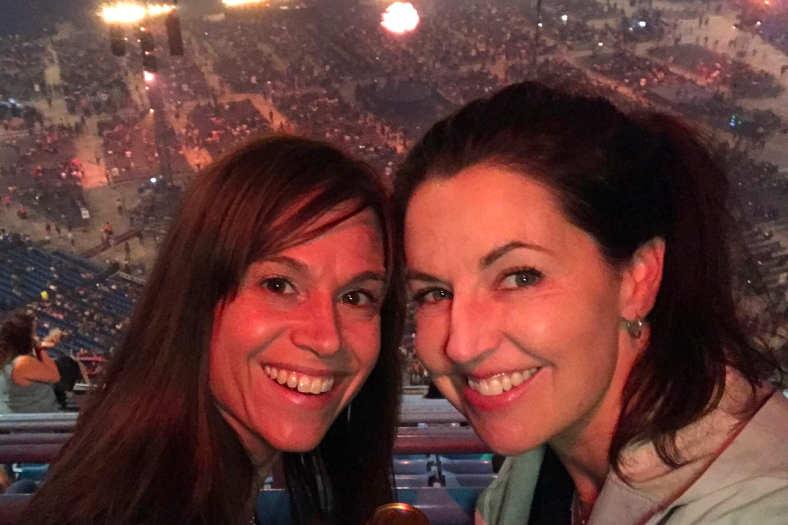
That night, the lifelong friends talked about the diagnosis and processed the news together. As they did for the patients and caregivers they had supported at work, they made a plan. The pair would do everything possible to try and slow the progression of the disease so Taya could live her life to the fullest for as long as she could.
Just over a year later, as COVID-19 spread, Taya’s lack of strength and mobility started to become more severe.
“I was unaware of how far Taya’s symptoms had progressed because I wasn’t often with her during the lockdowns,” said Paige. “Taya was managing day-to-day with the help of her three amazing children who were acting as her caregivers during that time.”
It wasn’t until the summer of 2021 that Paige saw the extent of difficulties Taya and her family were up against.
“Taya and the kids came to my cottage that summer, and I saw how challenging daily tasks had become,” said Paige. “Everything was a challenge – from getting up, having a meal, to getting dressed – everything was a struggle.”
At that point, it dawned on Paige that Taya’s kids would be returning to school in September, and Taya would be home alone.
“All I could think was who’s going to be there for Taya?” reflected Paige. “Taya is extraordinarily resilient, so I knew she would be okay at the very least, but I also knew she would have a lot of unmet needs if she were alone, and as a social worker, I knew there would be many compromises to her dignity that would go along with that.”
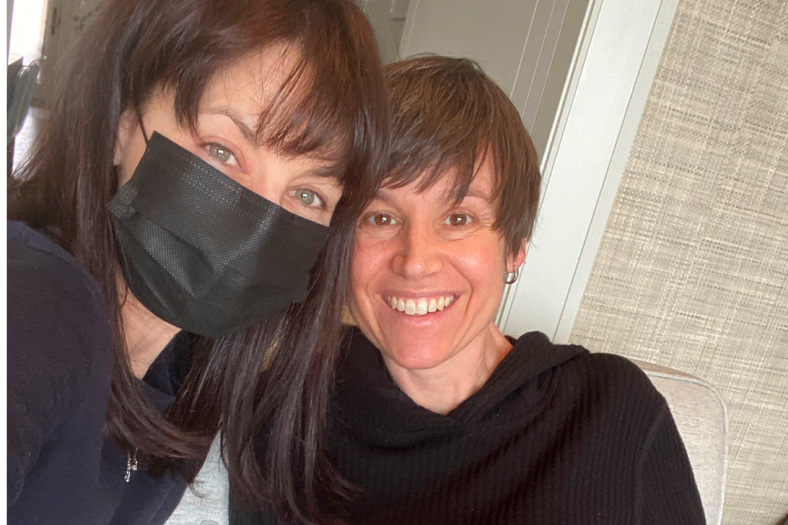
That is when Paige made a life-changing decision to retire early to care for her best friend.
“I let Taya know that after Labour Day, I’m going to wrap up with work and that I wanted to be her to be my priority,” said Paige. “I wanted to focus on the loved ones I had in my life for the rest of the time I got to have them.”
Paige and Taya talked through the details of what Paige’s support would entail day-to-day, and when Taya’s children returned to school, Paige became her primary caregiver.
Taya has a personal support worker with her each morning before Paige arrives. On her way over, Paige texts Taya and the kids to see what they need from the store, so she can pick up any items like groceries. Taya also has other friends who assist in the evenings and weekends.
“One of the things that can make caregiving challenging is how flexible you must be,” said Paige. “A typical day looks like taking out the garbage, unloading the dishwasher, putting away the groceries, running errands, paying bills, helping her eat lunch, regular life tasks we take for granted because we do them every day with ease.”
“I think many people find the idea of caregiving to be daunting, but there are so many little things that someone can do for a person that benefits them a lot and requires no skill at all,” added Paige.
“Being a caregiver doesn’t have to be this big scary thing. It’s about finding out how you can allow someone to feel that they are supported. It’s about providing a sense of dignity to that someone in need. It can be as simple as just making sure that they have some food in their fridge.”
Through this journey with Taya, Paige has realized that the healthcare system is not well equipped to support the ever-changing needs of a person with ALS as their symptoms progress.
“Very few resources are geared toward people living with ALS,” said Paige. “You have to advocate for yourself to receive helpful resources and recommendations. That’s a lot to deal with as an individual loses their muscle function. What I do for Taya is not comparable to what she goes through every day.”
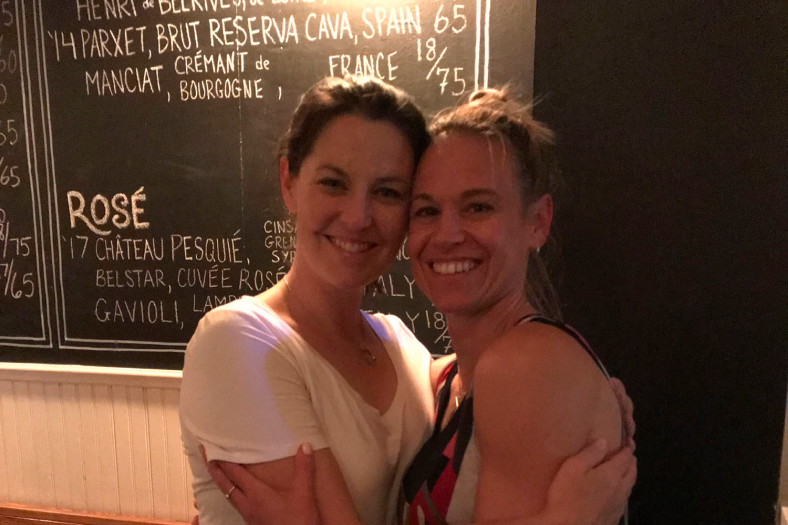
While Paige would never call herself as an inspiration for others or a role model, she absolutely is. Her selflessness and altruism are shining examples of what it means to be a best friend, to be family.
Even in the challenging times, Paige feels grateful to be with Taya, and to help her and her children through this journey. When it comes to being a caregiver, Paige believes everyone needs to recognize their limits and establish boundaries for their own self-care.
“No one person can do and be everything, it takes a village to provide a solid care plan and preserve everyone’s well-being. Being a caregiver is meaningful and life-changing,” said Paige. “It’s such a privilege, and I feel fortunate to spend this time with my friend.”
Unfortunately, following the publication of this article, Taya Jones passed away on August 7, 2022, as a result of her ALS.
